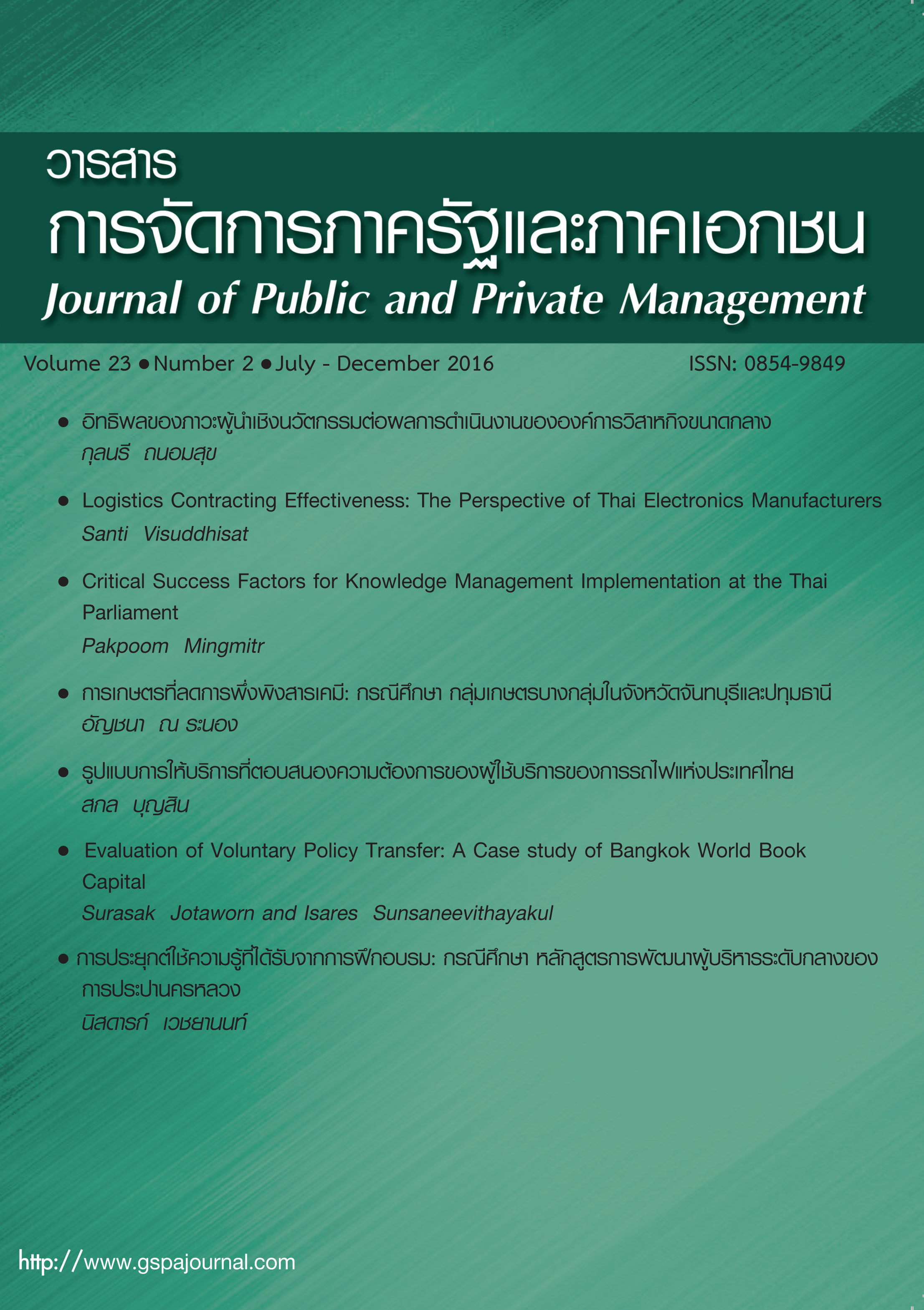Toward a Less Chemically-Dependent Agriculture: A Study on Some farmer Groups in the Chanthaburi and Pathum Thani Provinces
Keywords:
Sustainable agriculture, less chemically-dependent agriculture, group forming, farmer group, marketingAbstract
The use of pesticides in agriculture in Thailand has been increasing. Both farmers and consumers of agricultural products face adverse effects to their health. This research studies how farmer groups that use little or no pesticides are formed and developed. Group management, distribution of agricultural products, and knowledge management are also studied. Qualitative research - both participant and non-participant observation and in-depth interviews - is employed. Samples include local sage farmers, community leaders, farmers who use and do not use pesticides, and government officers in the Chanthaburi and Pathum Thani provinces.
The study found that the government plays an important role in supporting group formation and development. Group management is conducted from the bottom-up. Group members often share instruments, seeds, and other production factors within their group. Commercial distribution locales for non-pesticide agricultural products are limited, though farmers face problems of market accessibility or buyers’ unmet quantity demands. Moreover, there is an asymmetry of information amongst farmers, distributors, and consumers. Inspection for pesticides increases transaction costs for the buyers, which leads to reduced incentive to buy from non-accustomed sellers. Knowledge management is necessary to convert tacit knowledge into explicit knowledge. The study’s recommendation is to build or develop information and logistic systems to partner growers with potential buyers. It is also necessary to have independent organizations, trusted by consumers and able to inspect pesticide residues in agricultural products on a regular basis.



